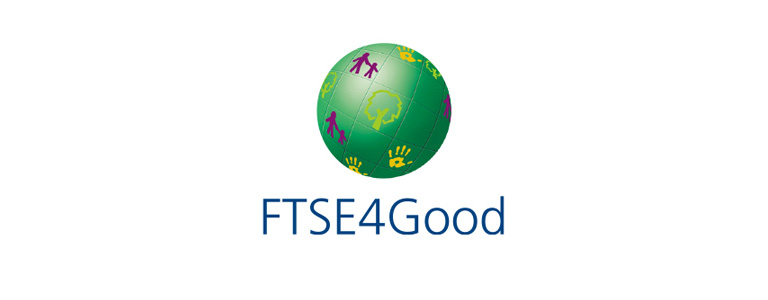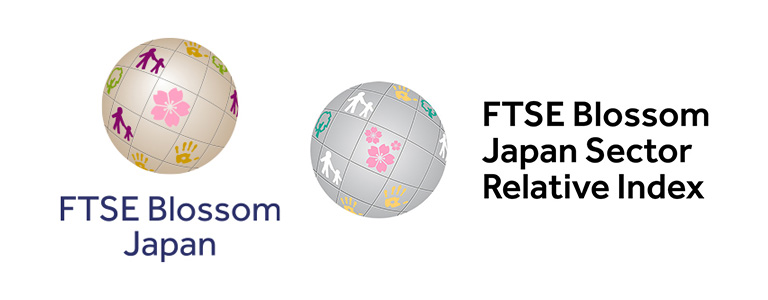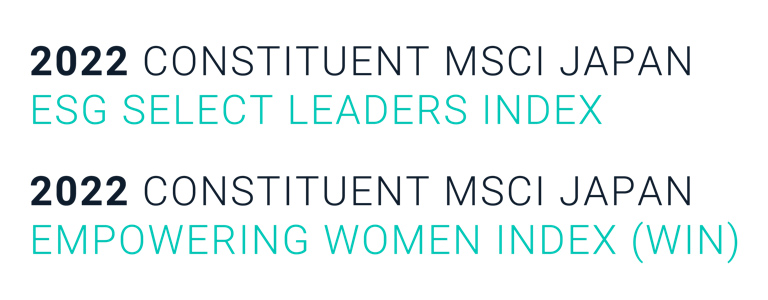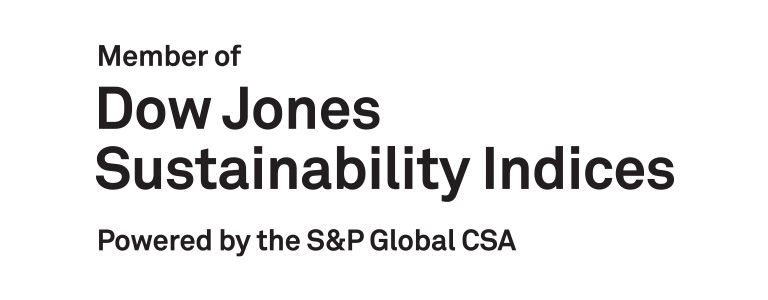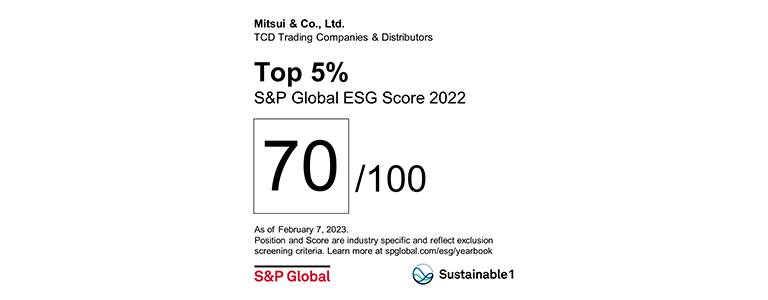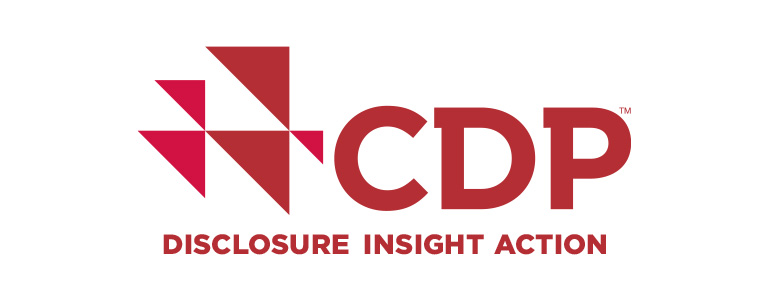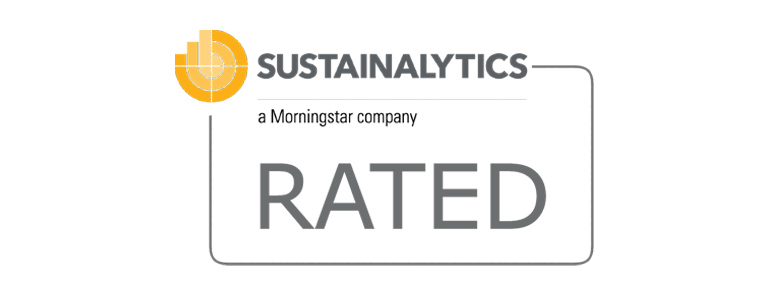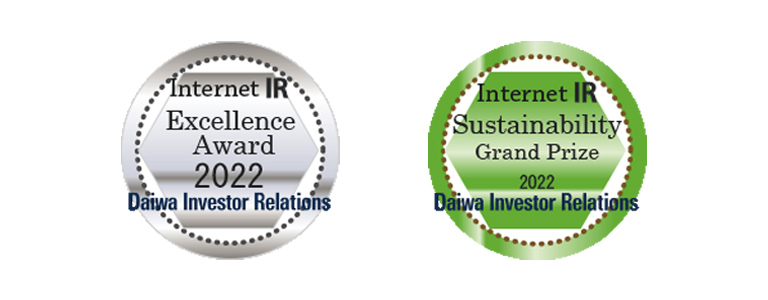Environment
Pollution Prevention
Policies and Basic Approach
Under our Environmental Policy, we have stipulated that we will act to reduce hazardous waste and pollutants and ensure the proper handling of any such materials, and strive to prevent air, water and soil pollution. We recognize that it is a vital issue for us to strive to improve the environmental value by reducing their environmental burden. This includes pollution control and protecting the environment. We will comply with laws, regulations and ordinances related to air pollution, water pollution, soil pollution, and rules covering other hazardous substances. We will also work to reduce the emission of pollutants and contaminated substances that are not subject to current laws, regulations and ordinances. We promote initiatives that lead to the reduction of water and soil contamination and a reduced quantity of chemical substances released into the atmosphere.
Goals and Targets
Preventing Environmental Pollution
- New business projects:
- Utilize ESG due diligence checklists and environmental-social risk maps for each business to assess the ESG impact of each new project.
- Existing business projects:
- Mitsui & Co. (non-consolidated): Manage environmental and social risks based on the international environmental management standard ISO14001.
- Consolidated subsidiaries: Recommend that our consolidated subsidiaries (that we have identified from the perspective of their industry and their impact on the environment and ecosystems) establish their own environmental management systems based on ISO14001 or other international guidelines.
- Environmental accidents:
- Aim to achieve 0 (zero) environmental accidents each year.
Compliance with Environment-Related Laws and Regulations
- Implement measures to deepen understanding of compliance with environment-related laws and regulations and ensure thorough compliance.
Saving Resources and Promoting Resource Circulation
- Increase the waste recycling rate at buildings owned by Mitsui & Co. as a non-consolidated entity (Head Office, Osaka Office) to over 90% by 2030.
- Reduce paper consumption at Mitsui & Co. (non-consolidated) by 50% or more compared to the fiscal year ended March 2020 by 2030.
Please scroll horizontally to look at table below.
| Progress against target | Scope of coverage | Unit | FY Mar/2020 | FY Mar/2021 | FY Mar/2022 | Level of target achievement |
|---|---|---|---|---|---|---|
| Waste recycling rate | The office buildings owned by Mitsui & Co. as a non-consolidated entity (Head Office, Osaka Office, Chubu Office)* | % | 82.2 | 85.6 | 93.8 | FY Mar/2022: Target achieved Continue to maintain over 90% in the next fiscal year |
| Paper consumption intensity | Paper consumption used at Mitsui & Co. (non-consolidated) per employee | thousand sheets /employee |
7.18 | 2.97 | 2.96 | FY Mar/2022: Target achieved Continue to maintain target at 50% or less compared to FY Mar/2020 level in the next fiscal year |
*For FY Mar/2020 and FY Mar/2021, company-owned buildings include the Chubu Office (Nagoya); from FY Mar/2022, the Chubu Office building is excluded due to relocation to a leased building.
Environmental Performance Data: Waste and Paper Consumption (Waste amount, Recycling rate)
Promoting Awareness-Raising Activities
- Aim to raise awareness among our officers and employees by holding regular seminars and training sessions on environmental laws and regulations.
- Promote initiatives for obtaining specialized knowledge through ISO14001 Provisional Auditor Training and other programs among our employees.
Sustainability Governance and Oversight
Sustainability Committee
The Sustainability Committee works under the Corporate Management Committee to plan, formulate and provide proposals on basic management policies, business activities, and corporate policies and strategies related to pollution prevention.
The Sustainability Committee is structured so that its activities are appropriately supervised by the Board of Directors, and matters discussed by the Sustainability Committee are regularly discussed and reported to the Corporate Management Committee and the Board of Directors.
| Officer in Charge | Makoto Sato (Representative Director, Senior Executive Managing Officer, Chief Strategy Officer (CSO), Chairperson of the Sustainability Committee) |
|---|---|
| Administrative Office | Corporate Sustainability Div., Corporate Planning & Strategy Div. |
Please refer to the links below for more information on Mitsui's Sustainability Management Framework and the activities of the Sustainability Committee.
ESG Risk Management
In conducting business, we have put in place a system to ensure that utmost consideration is given to the environment and society in projects at all stages, including at the launch of a new business, during operations, and even during the exit stage.
Chemical Safety Management in our Chemicals Business
In our Chemicals Segment, we position chemical substance management as an important trade compliance along with security trade control, to protect human health and safety, and to protect the global environment (specifically water, soil, air and the ecosystems of animals and plants). While taking into consideration the laws and regulations of peripheral business sectors such as pharmaceuticals and food products, we will update the information we have about chemical substance management laws and regulations so that we can keep abreast of increasingly tightening Japanese and international regulatory trends. In individual projects of each Business Unit, we consider their impact on the environment in advance and take sufficient measures before going ahead with new business.
Voluntary Efforts to Comply with Regulations Related to Chemical Substance Management and Safety Management of Chemical Substances
Chemicals can be dangerous or hazardous to the human body and the environment. In our Chemicals Segment, we comply with the following specific laws and regulations: the Chemical Substances Examination and Regulation Act; the Industrial Safety and Health Act; the Act on Confirmation, etc. of Release Amounts of Specific Chemical Substances in the Environment and Promotion of Improvements to the Management Thereof; the Poisonous and Deleterious Substances Control Act; and the Fire Service Act. We also comply with a wide range of environmental management systems. We have prepared management and operational procedure manuals as part of our in-house regulations. Based on the provisions of each law and regulation, we inform our supply chain of chemical hazard information by providing safety data sheets (SDS) and displaying this information on labels to ensure that people are properly notified.
Range of Chemicals that We Plan to Gradually Phase Out
In our chemicals business, we no longer handle any "substances that need to be phased out". We are contributing in the creation of codes of conduct for the chemical industry regarding the handling of chemical substances that need to be phased out. One specific example of this was our participation in prior consultations on the revision of the 2018 amended Ozone Layer Protection Law (amendment to the quantity allocation aimed at the reduction of manufacturing and amount of import of HFC substitutes) with the Fluoride Gases Management Office, Chemical Management Policy Division, Manufacturing Industries Bureau of the Ministry of Economy, Trade and Industry (which has jurisdiction over this Law) on the Trade Control Committee (for companies importing or exporting chemicals involving a lot of money) of the Japan Chemical Exporters and Importers Association.
Performance and Management of Substitutes for Substances of Concern
There are no specific records of the introduction of substitutes for substances of concern in our chemicals business. At the same time, there is always the need to raise awareness across all sectors of the chemical industry of the importance of preliminary examination of the hazards related to chemical substances to be newly manufactured or imported. This is one example of activity in the chemical industry that is based on a common concern. To achieve this, we have raised awareness in the industry through such initiatives as sending lecturers from our company to the industry seminar program "Chemical Import Practice" that is sponsored by The Japan Chemical Exporters and Importers Association, to share knowledge of legal compliance practices related to the management of newly imported chemical substances within the industry.
Compliance and Training for Chemicals Business Laws and Regulations
Evaluation of the hazards and toxicity of chemical substances is a social responsibility of all businesses that handle chemical substances, including Mitsui & Co. All products and raw materials that we handle are subject to such evaluations. While we are not a manufacturer, we maintain the recognition that the responsibility of an importer of chemicals distributed in the Japanese market is exactly the same as that of a Japanese manufacturer of chemicals.
We provide regular training on laws and regulations related to the management of chemical substances for all employees handling chemicals at Mitsui & Co. and its group companies. As a trader of chemicals, during the bimonthly training sessions we explain the need to communicate hazard and toxicity information correctly throughout the supply chain, and we set additional training themes based on frontline needs. Nearly 300 people voluntarily participate in each session in our endeavor to communicate the importance of proper chemical substances management. By holding frequent in-house training sessions on the Chemicals Business Laws and on other topics, we continue to promote awareness of the evaluation of the hazards and toxicity of chemical substances as well as the appropriate labeling and display of information of such substances.
Management System for Responding to Emergencies and Accidents
Any accident is promptly reported to the relevant units in accordance with our internal rules, and comprehensive steps are taken to prevent recurrence, beginning with the identification of the root cause of the accident and an assessment to determine appropriate corrective and preventive measures. In the fiscal year March 31, 2022, there were 0 (zero) environmental accidents at Mitsui & Co. or any of its subsidiaries in Japan or overseas.
Training Seminars on Environmental Laws and Regulations
We continually hold seminars regarding environmental laws and regulations for officers and employees of Mitsui and its subsidiaries and affiliated companies. In the fiscal year ended March 2022, we conducted e-learning training seminars on environmental laws and regulations, an online seminar on the Waste Disposal Law, and online training on business laws and specific environmental issues, with around 2,430 people participating in total.
Lectures and Training Seminars Held in FY Mar/2022
| Title | Participants | Target Audience |
|---|---|---|
| E-learning Training Seminars on Environmental Laws and Regulations | Approx. 360 | Mainly officers and employees of Mitsui and affiliated companies |
| Online seminar on the Waste Disposal Law | Approx. 350 | Officers and employees of Mitsui and affiliated companies |
| Training on business laws and specific environmental issues: Chemicals Business Laws/Waste Management and Public Cleansing Act (seven times) |
Approx. 1,720 | Officers and employees of Mitsui and affiliated companies |
Environmental Management: Lecture on Environmental Laws and Regulations
Waste Disposal Law
Mitsui operates in compliance with the Waste Management and Public Cleansing Law (also referred to as the "Waste Disposal Law" or "Waste Law"). In order to properly manage the disposal of industrial waste generated through logistics operations and general waste from business activities, we have formulated a workflow in connection with the handling of industrial waste and general waste from business activities and prepared FAQ documents. Such tools and documents are utilized by relevant divisions and departments. We also hold periodic internal seminars to increase awareness and understanding of proper waste disposal practices, covering such matters as the selection of waste management subcontractors and manifest compilation and management.
Compliance with Other Environmental Laws and Regulations
In promoting business activities, we comply with environmental laws and regulations, including but not limited to the following. During the fiscal year ended March 2022, there were no reports of violations of environmental laws and regulations.
Act on Special Measures Concerning Promotion of Proper Treatment of PCB Wastes/Act on Rational Use and Proper Management of Fluorocarbons/Water Pollution Prevention Act/Soil Contamination Countermeasures Act/Act on the Promotion of Sorted Collection and Recycling of Containers and Packaging/Act on Promotion of Recycling and Related Activities for Treatment of Cyclical Food Resources/Air Pollution Control Act/Offensive Odor Control Law/Poisonous and Deleterious Substances Control Act/Fire Service Act/Industrial Safety and Health Act/REACH (Registration, Evaluation, Authorization and Restriction of Chemicals) regulations.
Environmental Management: Compliance with Environment-Related Laws and Regulations
Collaborating with Stakeholders
Participation in Initiatives
We are promoting and expanding our efforts for pollution prevention through participation in initiatives. Our participation in each initiative is decided after confirming that it is consistent with our basic policy and initiatives for pollution prevention.
CLOMA (Japan Clean Ocean Material Alliance)
CLOMA was established in January 2019 to find solutions to the emerging global challenge of marine plastic debris through the sustainable use of plastic products, the development and introduction of alternative materials, and the acceleration of innovation. Mitsui is one of the 26 secretary companies. As of May 2022, 468 companies and organizations have joined CLOMA, including a few of Mitsui's subsidiaries namely, Mitsui & Co. Plastics Ltd., Mitsui Bussan Packaging Co., Ltd., and Vendor Service Co., Ltd.
Mitsui participates in the Dissemination & Promotion Working Group, which shares technological information to make it easier to select the best alternative materials for each application, the Technology Working Group, which holds technological exchanges and technological seminars on the latest development results, and the International Working Group, which collects information through collaboration with international organizations and research institutions and provides information and technological consulting services in developing countries. In addition, Mitsui chairs the Indonesia Cooperation Working Group, which was formed under the supervision of the International Working Group, and plans contributions with a focus on specific countries. Looking ahead, Mitsui will continue to take the actions needed to help resolve the problem of marine plastic waste.
CEFLEX (Circular economy for flexible packaging)
CEFLEX is a European collaborative consortium of companies and associations representing the entire value chain of flexible packaging. CEFLEX is exploring the development of infrastructure systems to collect, sort, and recycle plastic flexible packaging. Mitsui has participated in the consortium since 2018 as one of more than 200 companies that are involved in the plastic packaging materials value chain. Mitsui has been playing active roles in various work groups and will continue to contribute to the realization of a circular economy through its participation in CEFLEX.
Japan Partnership for Circular Economy
As the trends towards a circular economy are accelerating globally, the Japan Partnership for Circular Economy has been established by the Ministry of the Environment, the Ministry of Economy, Trade and Industry, and the Nippon Keidanren Federation, to enhance public-private collaboration and further foster the understanding and support of a wide range of stakeholders, including companies in Japan, for the circular economy. Mitsui has been participating in this partnership since March 2021. Through this partnership, we will help improve the competitiveness of Japanese companies in the field of the circular economy.
Initiatives
Initiatives as Part of Business Activities
| Aim | Initiatives |
|---|---|
| Prevention of atmospheric pollution through the detoxification of exhaust gas | As a distributor, Mitsui & Co. Plastics, one of our subsidiaries, is building and expanding a nationwide network of sales and logistics locations and infrastructure for AdBlue®, which breaks down the nitrogen oxides (NOx) contained in exhaust gases from trucks and buses, then converts them into harmless water and nitrogen. |
| Proper treatment of industrial water | In addition to monitoring and managing water quality in mining and surrounding areas, we minimize wastewater through maximization of recycling. |
| Reduction of atmospheric pollution from transportation vessels | We are updating our fleet, including increased orders for vessels with substantially lower SOx and NOx emissions. |
| Reduction of marine pollution |
Joint project with JICA/researchers on an HAB (Harmful Algal Bloom) early warning system |
Initiatives in Sustainable, Land-based Salmonid Aquaculture with no Marine Pollution and not Depending on Natural Seawater
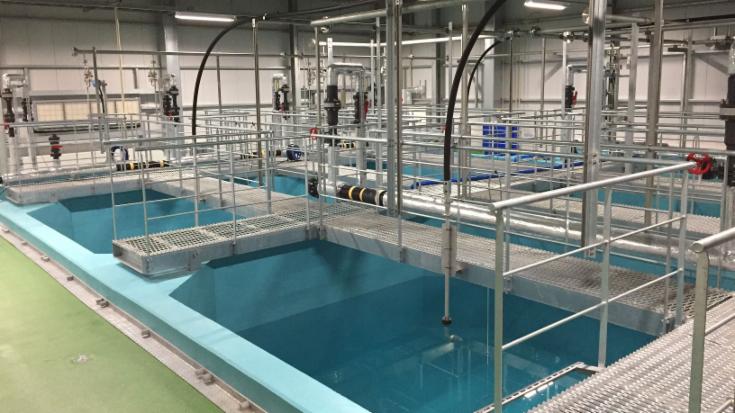
Global consumption of salmonids is growing year by year. While the size of the global salmonids market is in the top-3 of marine-farmed fish species, the industry is not without its problems. Water pollution caused by leftover food and fish excrement has become a problem, and there is little room for further expansion of aquaculture farms. Given these circumstances, we have formed a partnership with FRD Japan Co. which has advanced biofiltration technology. This is the world's first land-based aquaculture system that can raise fish by recirculating virtually 100% artificial seawater created from tap water. We are involved in an onshore trout aquaculture business that enables a sustainable fishery while minimizing the environmental burden on the ocean.
From 2018 we began operation of a pilot plant in Kisarazu City in Chiba Prefecture. The plant sells the trout it raises under the brand name of "Okasodachi." In 2022 we expect to begin construction of a commercial plant with an annual production capacity of 2,000 tons. Through this business, we are helping to prevent marine pollution as much as possible and contribute to the production and supply of sustainable marine products.
Joint Project with JICA/Researchers on an HAB (Harmful Algal Bloom) Early Warning System

HABs (Harmful Algal Blooms), including red tides, are caused by abnormal concentrations of phytoplankton in seawater. In recent years, the phenomenon has been attributed to environmental pollution and global warming. A record HAB outbreak occurred in Chile in 2016, causing major damage to salmon farming and fisheries, which are among the country's main industries. Universities and research institutes in Japan and Chile have established a research project in collaboration with government agencies and other organizations in Chile with the aim of developing and operating an HAB early warning system.
Mitsui & Co., which has invested in the salmon farming business in Chile, was also asked to cooperate in this initiative through the Japan International Cooperation Agency (JICA) following a request for assistance from the Chilean government. Our role is to consolidate and extend the results of the project in society. In April 2018, we began to collaborate in the project after concluding an agreement with JICA, which was participating on a technical assistance basis. Since then we have supported industry-academia collaboration in Japan and Chile toward the development of an HAB monitoring system.
We believe that this project can contribute to the reduction of damage caused by HABs by issuing warnings based on forecasts from this system, and by sharing information about preventive measures with people working in the fisheries industry. We also believe that it can contribute to the reduction of environmental pollution in local environments, and further regional economic development.
Initiatives to Reduce and Prevent Pollution—Actions Relating to Radioactive Substances
Our wholly owned subsidiary in the United States had previously traded uranium concentrate in the U.S., but as of the end of July 2022, it does not handle nuclear fuel or radioactive waste. If we are to handle these substances in the future, we will ensure that they are entirely for peaceful purposes such as for civilian power generation. We will comply with all relevant laws and regulations in the country concerned. In addition, we will strictly comply with the management standards in the relevant laws and regulations regarding the handling of radioactive substances and the management of exposure risks.
Costs Associated with Related to Climate Change
Climate change risk mitigation costs: Waste recycling cost at buildings owned by Mitsui & Co. as a non-consolidated entity (Head Office, Osaka Office): 4 million Japanese Yen (FY Mar/2022)
